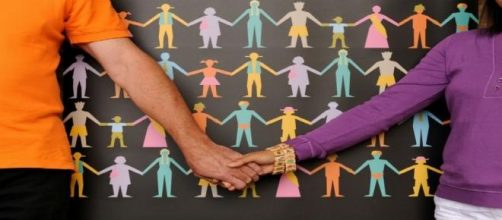In the recent years, this day was popularised with the motto, "Do one thing for diversity and inclusion". This year's theme for the World Day for Cultural Diversity was determined to be "Sharing Culture for a Shared Security", in order to counter violent extremism with interfaith and intercultural dialogues.
However, as the world is celebrating this day, many UK citizens with various backgrounds feel that tolerance towards cultural differences in the UK has been shrinking.
In the past, many analysts acknowledged this pattern and attributed it to the recent economic crisis which created a scarcity of jobs and resources.
A UNESCO report on the issue also confirmed the negative impact of the economic crisis on social cohesion in culturally diverse societies. Furthermore, many see flaws in David Cameron's statements and initiatives about multiculturalism, one of which now requires "promotion of British values" in schools.
Farrah Butt, a 33 year old Londoner of Asian and Muslim heritage, is among many who believes that UK's cultural diversity might be under threat. She is in the opinion that this is a relatively recent phenomenon too.
"I hear people's opinions that I've known my whole life, for whom subject of race, colour and religion has never been an issue. But suddenly, now I hear them sprouting very ignorant opinions.
It's as if in the last few years people have decided that immigrants or even products of immigration are to blame for the wide variety of issues being faced by Britain," she says.
Whilst many people like Butt believe that the cultural diversity in the UK is under threat, there is also a considerable amount of people who maintain that it is the very British culture that is under threat. According to the latest study conducted by the Office for National Statistics, White British is still the largest ethnic group in England and Wales at 80.5 society, and 91 percent of the usual resident population identify with at least one UK national identity; English, Welsh, Scottish, Northern Irish or British.
Nevertheless, David Cameron, now the Prime Minister since 2010, appears to be among people maintaining that British culture is under threat.
Last week at a National Security Council, he expressed that tolerance that UK society had towards different backgrounds had resulted in extremist activities. "For too long, we have been a passively tolerant society, saying to our citizens 'as long as you obey the law, we will leave you alone'," he said.
Laying out some of his plans to combat extremism, including the intention to allow the police to monitor online conversations, he added: "It's often meant we have stood neutral between different values. And that's helped foster a narrative of extremism and grievance."
Marisa Pereira of WORLDwrite, an educational charity working extensively on multiculturalism, has a different take on being passive.
"Since 1980s or so, there has been an atmosphere in the UK that we cannot criticise each other. Tolerance is depicted as it should be passive act. As a result, people shy away from any disagreement, stay in their own circles and not engage in debate with other groups. But, in fact tolerance should be an active act. The only way to find harmony and truth is to engage in dialogues, to disagree and to move on," she said.
Mr. Cameron's government will reveal the details about the plans to fight extremism later this month. The proposal to ban certain ideas and opinions that wouldn't align with "British values" has already been criticised for potentially violating the act of freedom of thought.

